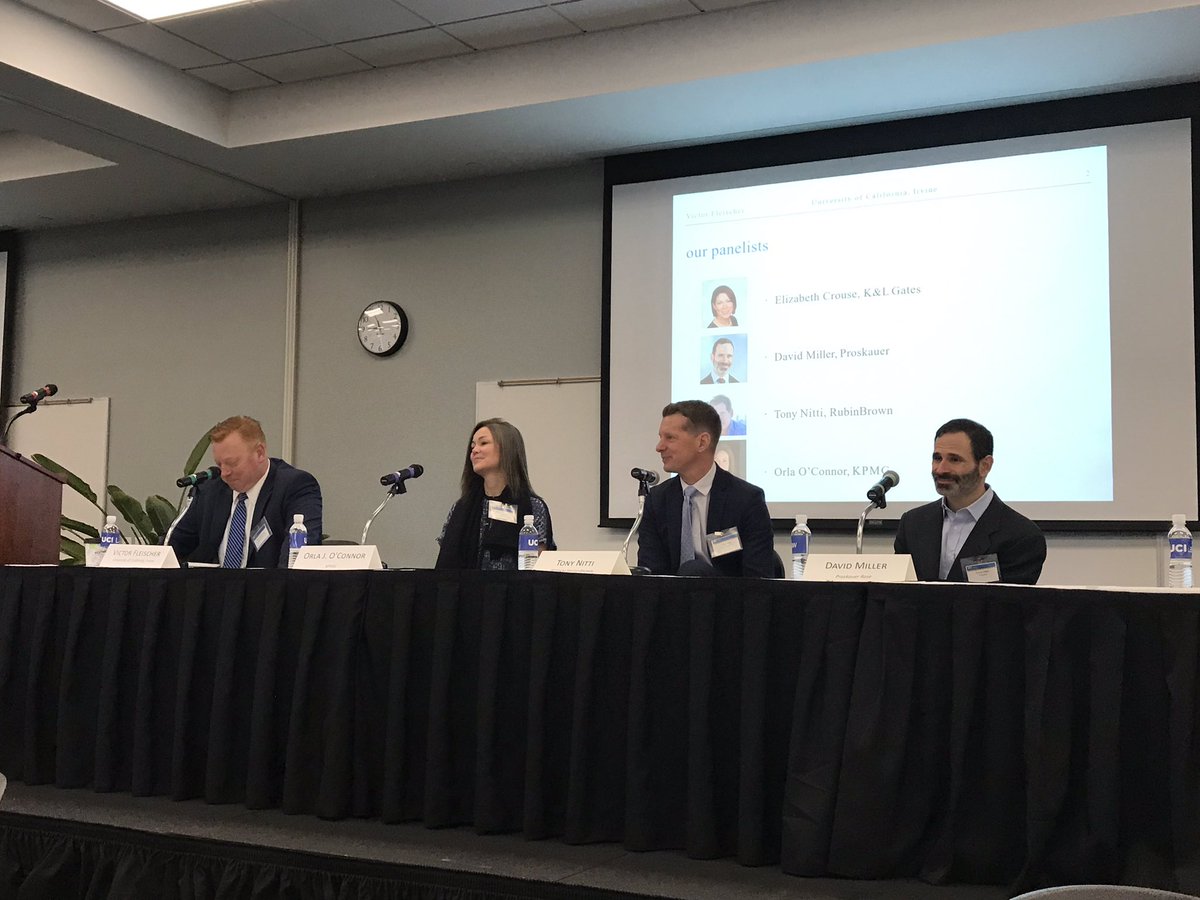Back to Insights
Focus on Taxation: Analysis of the New Tax Law
Focus on Taxation: Analysis of the New Tax Law
Last week, RubinBrown Partner Tony Nitti spoke on a panel that analyzed the new tax law, as well as the latest views about the law among taxpayers and journalists.

The panel discussion was part of the First Annual University of California Irvine Law Symposium. The university held the event as part of its launch of a new graduate tax program.
Other speakers and panelists throughout the symposium included:
Key takeaways from the day included the following:
For further analysis of the new tax law, please bookmark Nitti’s column in Forbes:

The panel discussion was part of the First Annual University of California Irvine Law Symposium. The university held the event as part of its launch of a new graduate tax program.
Other speakers and panelists throughout the symposium included:
- Victor Fleisher, UCI professor and former economist on the Hill
- Seth Hanlon, the former special assistant on economic policy to President Obama
- Mark Prater, former Chief Tax Counsel to the Senate Finance Committee and now the managing director of PwC’s tax policy services
- John Stowel, who leads the global tax function at Disney
Key takeaways from the day included the following:
- There are several major drafting errors in the 2017 tax bill that are negatively impacting taxpayers. House Democrats have said they’ll need time to fully understand the bill before they’ll move on making technical corrections. This will place our clients in a tough situation, because in the interim, they are required to prepare their returns in accordance with what the law says, rather than what it was supposed to say.
- If Democrats take back the White House in Senate in 2020, while it is unlikely that the entirety of the 2017 act will be replaced, there is a strong possibility that the corporate rate will be increased to 25% or 28%.
- The 2020 election may hinge, in part, on the country’s reaction to the 2017 tax act. While 9 out of 10 taxpayers received a cut under that bill, because of lowered withholding, many people are receiving refunds related to 2018 tax returns that are smaller than 2017 amounts. If this continues, the bill could drop from its already-low 38% approval rate. Because the tax act was, to date, the signature legislation of President Trump’s administration, policy experts believe that a further fall in public approval could play a big role in the upcoming election.
For further analysis of the new tax law, please bookmark Nitti’s column in Forbes: